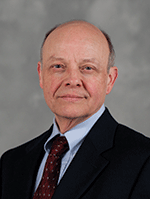Short Course at ECS meetings
Exceptional performance in a technical job and career requires detailed knowledge of the fundamentals of the specific field and related areas, and the ability to apply that knowledge to solve problems. This is a necessary but not sufficient condition for career success. Less than 50% of an engineer’s time in any technical position will generally be spent on science- or engineering-focused tasks. This percentage decreases with increased responsibility level and experience; in management positions, less than 20% is typical. Much of the day-to-day time invested by practicing engineers involves interactions with other individuals and groups of individuals within or outside the organization, where directions, goals, and performance are discussed. It is therefore critical to develop leadership and decision-making skills, to communicate decisions and implications clearly, and to ensure that these tasks are performed in a professional manner. Despite the essential nature of these skills to career success, little emphasis is afforded them in technical core or even elective courses.
This course will address technical leadership and decision-making approaches and the closely-related characteristics of ethics and professionalism that promote success in scientific and engineering organizations and careers. Attendees will be presented with “tools” that enhance their leadership abilities and that can be marketed via resumes and job interviews.
Course outline
- Communication
- Building credibility
- Building a team
- Managing versus leading
- Establishing a vision
- Setting goals
- Running a meeting
- Building consensus
- Decision-making and implementation
- Dealing with conflict and nay-sayers
- Presenting difficult messages to subordinates
The course will focus on various approaches that address these tasks/issues and to interactive discussion of situations that are encountered during a technical career.
About the instructor
 Professor Dennis Hess‘s research interests are in thin film science and technology, surface and interface modification and characterization, microelectronics processing and electronic materials. His group focuses on the establishment of fundamental structure-property relationships and their connection to chemical process sequences used in the fabrication of novel films, electronic materials, devices, and nanostructures. Control of the surface properties of materials such as dielectrics, semiconductors, metals, and paper or paper board by film deposition or surface modification allows the design of such surfaces for a variety of applications in microelectronics, packaging, sensors, biomedical testing, and microfluidics. He has published more than 240 papers in archival journals and given more than 250 invited talks at conferences, universities, and industrial firms.
Professor Dennis Hess‘s research interests are in thin film science and technology, surface and interface modification and characterization, microelectronics processing and electronic materials. His group focuses on the establishment of fundamental structure-property relationships and their connection to chemical process sequences used in the fabrication of novel films, electronic materials, devices, and nanostructures. Control of the surface properties of materials such as dielectrics, semiconductors, metals, and paper or paper board by film deposition or surface modification allows the design of such surfaces for a variety of applications in microelectronics, packaging, sensors, biomedical testing, and microfluidics. He has published more than 240 papers in archival journals and given more than 250 invited talks at conferences, universities, and industrial firms.

